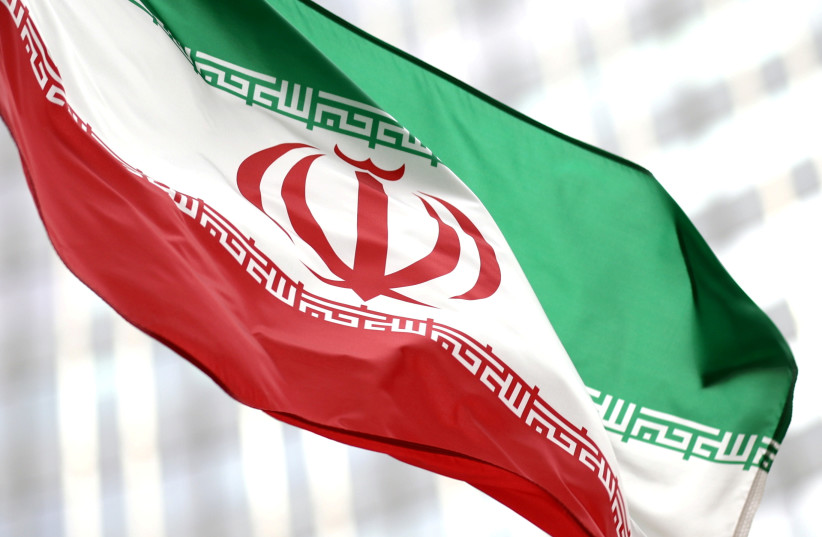Despite some hints of the resumption of negotiations on Iran’s nuclear program in Vienna, more specific indications confirm that the dilemma does not lie in the seventh round of negotiations, which has been stalled for months. The real crisis lies in several issues, including the divergence of Iranian and US positions and then the loss of trust between Tehran and the international nuclear agency.
International Atomic Energy Agency Director-General Rafael Grossi has been warning for some time that the IAEA’s ability to monitor Iran’s nuclear program is waning. During his recent visit to Washington, he noted that the measures in place to monitor Iran’s nuclear program are no longer accurate.
The unidentified official has requested a meeting with Hossein Amir-Abdollahian, Iran’s new foreign minister. But he has not yet been approved by the mullahs, who are deliberately playing fast and loose.
“I haven’t been able to talk to [Iran’s new] foreign minister,” Grossi told the Financial Times during a visit to Washington. “I need to have this contact at the political level. This is indispensable. Without it, we cannot understand each other.”
This position alone is clear evidence that the mullahs are deliberately keeping the IAEA out of their nuclear activities for as long as possible. Their return may not even serve the purpose of control.

Their absence may have already muddied the waters and caused IAEA inspectors to take a long time to reaffirm the standards for monitoring Iranian nuclear activities. This means that the mullahs are deliberately stopping halfway and not giving the inspectors enough opportunities to accomplish their tasks.
The result of all these maneuvers was summed up by Grossi himself when he stated that the time needed for Iran to acquire military nuclear capabilities was decreasing by the day. This statement alone gives the IAEA Board the task of addressing Iran’s negative behavior at the Board’s quarterly meeting scheduled for November.
The mullahs are reluctant to receive the IAEA chief to discuss the implementation of the agency’s measures.
Iranian media outlets even report that Tehran has refrained from setting a new date for Grossi’s visit because it views the IAEA director-general’s role – which the mullahs consider “one of the main obstacles to the resumption of nuclear talks in Vienna” – as “destructive” and politically motivated, although there is no clear relationship between the IAEA’s monitoring measures, on the one hand, and the agenda for talks related to the mullahs’ commitments to the nuclear deal, on the other.
Along with Iran’s evasion of IAEA monitoring, the mullahs’ regime is practicing other tricks with international powers regarding the resumption date of the Vienna talks that aim to revive the 2015 nuclear deal between Iran and the 5+1 group (US, UK, France, Germany, Russia and China).
The mullahs assure the Europeans who are mediating the resumption of the talks that they will return “soon,” although no one knows the exact meaning of the word “soon” from the Iranian perspective. They have been repeating this since Ebrahim Raisi came to power.
At that time, they said they would review the results of the previous six rounds of negotiations and then develop a scenario for the seventh round. To date, the mullahs have not completed this review.
I don’t think they will finish anytime soon unless they reach a clear strategic conclusion or feel that the fate of the regime is in danger, i.e., the alternative scenario is there to counter their prevarications. Western capitals, with Washington in the lead, are talking about the need for Iran to return to Vienna “as soon as possible” and to make intensive efforts to probe the mullahs’ intentions.
Enrique Mora, the EU’s deputy secretary-general for political affairs, recently visited Tehran to be clarified about the Iranians’ intentions regarding their return to Vienna and when they will do so if they are really serious. But the fruit of these efforts was not at all reassuring.
There is no doubt that the mullahs are putting a lot of pressure on the shoulders of the IAEA and its director-general to avoid presenting a resolution condemning Iran’s behavior at the next IAEA Board of Governors meeting. It is important to realize the seriousness of Iran’s move to put everyone against the wall.
The “soon” and “sooner” in Iranian and Western positions on resuming nuclear negotiations reflect the dilemma of timing in this crisis as much as the uncertain future of addressing Iran’s nuclear activities.
The writer is a UAE political analyst and former Federal National Council candidate.
